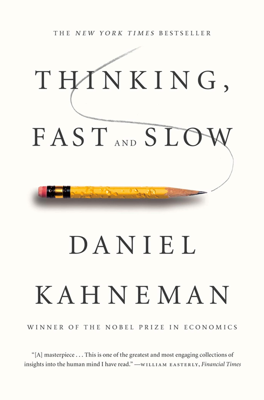Two Selves
Two Selves: Experienced Utility vs. Decision Utility
The chapter discusses the concept of utility, distinguishing between experienced utility and decision utility. Experienced utility refers to the pain or pleasure derived from experiences, as initially discussed by Jeremy Bentham. In contrast, decision utility, which is more commonly used in economic theories, refers to the "wantability" or the preferences that guide decision-making.
Discrepancies Between Experienced and Decision Utility
The author explores potential discrepancies between the two types of utility through hypothetical scenarios and experiments, questioning how values are assigned based on different contexts of pain. For instance, reducing the number of painful injections from 20 to 18 versus from 6 to 4 presents a value discrepancy related to the perceived utility of reducing pain, raising questions about consistent decision-making.
Experience vs. Memory
The chapter delves into how experiences are remembered and assessed, introducing concepts like the peak-end rule (the retrospective assessment of experiences based largely on their most intense point and their end) and duration neglect (ignoring the duration of the experience in memory and judgment). These concepts suggest that memories of experiences can be distorted by focusing on certain elements and overlooking others, such as the duration of pain.
Illustrative Experiment: Cold-Hand Trial
An experiment called the "cold-hand trial" is used to highlight the conflict between the experiencing self and the remembering self. Participants subjected to hand immersion in cold water showed a preference for a longer duration of discomfort with a slight decrease in intensity at the end over a shorter but consistently intense experience. This finding underlines how the peak-end rule influences preference, demonstrating a mismatch between actual experience (experienced utility) and later choice or memory of that experience (decision utility).
Implications of Memory's Influence on Decisions
The chapter critiques the reliability of preferences that are based on memory rather than direct experiences, indicating a deep-seated flaw in how choices are perceived as rational or optimal. These insights challenge the conventional economic assumption that individuals have stable preferences and know how to maximize their interests.
Decision Making: Rationality vs. Biological Influences
The author contrasts biological mechanisms that simplify memory through the peak-end rule and duration neglect with the need for rational decision-making that accurately reflects the sum of experiences. This natural tension suggests that fundamental aspects of human psychology are not always aligned with making decisions that maximize personal utility over time.
Narrative and Contextual Examples
The text provides real-life applications and examples, such as judicial decision-making and personal reflections on past relationships or experiences, to illustrate how the remembering self influences perceptions and decisions in everyday life. This highlights a broader application of the peak-end rule and duration neglect in forming judgments and decisions that might not be optimally aligned with actual experiences.
